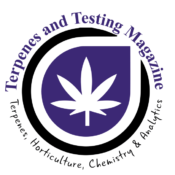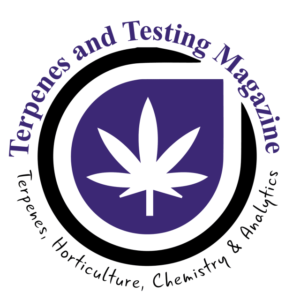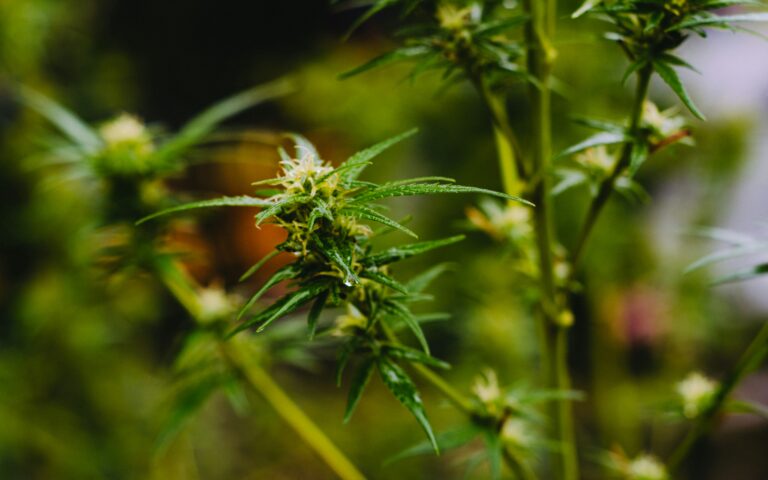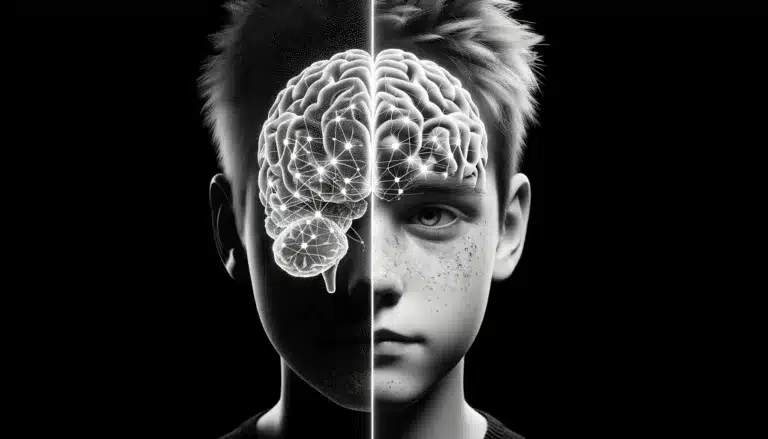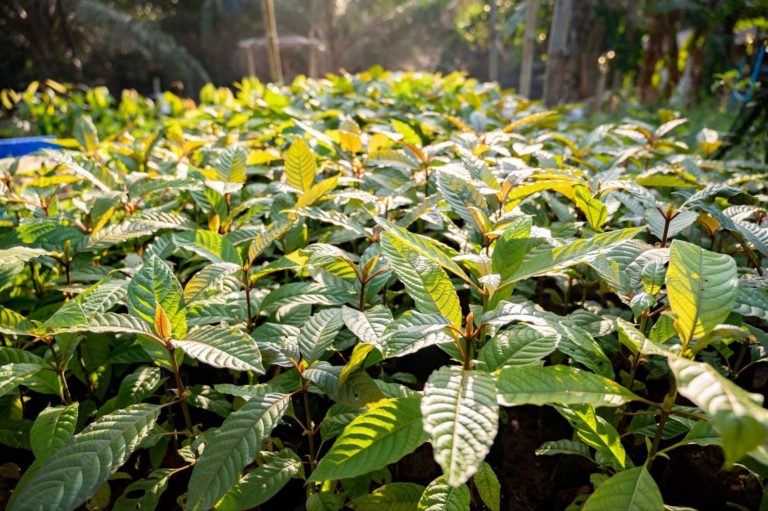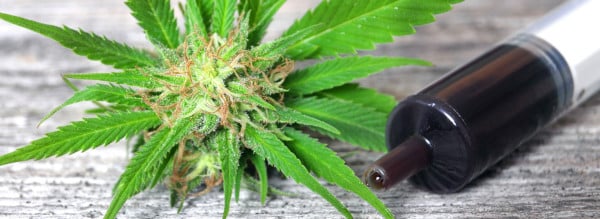
By Loren DeVito, PhD, Staff Writer for Terpenes and Testing Magazine
In 2003, a Canadian man named Rick Simpson was diagnosed with basal cell carcinoma, a type of skin cancer. After coming across a paper published in 1975 describing the effects of cannabis on impeding tumor growth, Rick came up with an idea. [1]
Rick decided he would try to use cannabis to treat his skin cancer. He created a potent cannabis oil consisting of 90% tetrahydrocannabinol (THC) that he used to treat his cancer topically. He applied the oil to the cancerous lesions and covered them with a bandage for several days. What happened next made Rick a cannabis hero – and a marked man by the authorities.
When Rick removed the bandages – as the story goes – the lesions were gone. Following this shocking result, Rick became a cannabis evangelist, fully convinced of the cancer-fighting power of cannabis. To recreate theses effects and help others, he developed and distributed this oil – now called Rick Simpson oil, or RSO – for free to thousands of people.
But, his life became complicated due to the nature of this illicit treatment.
Not only did Rick face backlash from the medical community who refuted his claims, he was arrested by Canadian authorities in 2009 and his plants were seized. Rick currently lives in Europe and continues to write books and educate patients about how to make, dose, and use RSO to treat cancer.
The Rick Simpson story is a truly epic tale in the history of medical cannabis that highlights the struggle of “illegal” healing. However, it is very important to evaluate the body of literature on cannabis and cancer to determine if RSO or other cannabis formulations really are effective for cancer.
Cannabis is widely used to treat cancer-associated symptoms, such as nausea and pain from chemotherapy. In fact, the FDA has approved a few synthetic cannabis therapies for these uses. [2] And there is some evidence that cannabinoids can indeed prevent or slow cancer growth when used in combination with traditional cancer treatments. [3] However, whether cannabis can treat the cancer itself is still up for debate.
Preclinical studies have indicated that cannabinoids may target and inhibit growth of an aggressive type of breast cancer (called ErbB2-positive breast cancer), certain types of leukemia (a type of blood cancer), and melanoma skin cancer (similar to the type Rick used his oil to treat). [4-6] There is also evidence that cannabinoids and cannabis receptors are involved in the molecular mechanisms involved in cancers of the colon, stomach, liver, and pancreas, as well as the lung and thyroid. [7]
Just hearing the preclinical evidence alone can be instill hope in many, as cancer claims so many lives each year. However, it’s important to reign in the hype and recognize that preclinical data must stand up to evaluation in human clinical trials – the final frontier of safety and efficacy evaluation.
While most clinical trials on cannabis and cancer have focused on pain management, there are a few trials underway evaluating cannabinoids for the treatment of recurrent glioblastoma multiforme, or GBM, a rare type of aggressive brain tumor. In fact, GW Pharmaceuticals announced positive results from a Phase 2 trial of a CBD/THC formulation on GBM. And there are two other trials underway evaluating CBD/THC or CBD on GBM and other cancer types.
If you are interested in using cannabis to treat your or a loved one’s cancer, talk to your or their doctor. Oncologists can provide guidance based on the type and stage of cancer. Since traditional and newer cancer therapy protocols are carefully designed, cannabis use should be incorporated into this schedule to maximize its effectiveness.
And while there are many people who have seen positive effects on their cancer after cannabis use, there is no clinically proven evidence to indicate that cannabis alone (without other cancer treatments) can prevent or stop tumor growth. Creating an integrated plan with an oncologist is the best path forward until we have more definitive data.
[Image]
References
- Munson, A.E., Harris, L.S., Friedman, M.A., Dewey, W.L., Carchman, R.A., “Antineoplastic Activity of Cannabinoids”, J Natl Cancer Inst, 1975, Volume 55, pg. 597-602. (impact factor: 12.589; cited by: 263)
- Abrams, D.I., “Integrating Cannabis into Clinical Cancer Care”, Curr Oncol, 2016, Volume 23, pg. S8-S14. (impact factor: 2.048; cited by: 57)
- Scott, K.A., Dalgleish, A.G., Liu, W.M., “The Combination of Cannabidiol and Δ9-tetrahydrocannabinol Enhances the Anticancer Effects of Radiation in an Orthotopic Murine Glioma Model”, Mol Cancer Ther, 2014, Volume 13, pg. 2955-2967.(impact factor: 5.365; cited by: 94)
- Caffarel, M.M., Andradas, C., Mira, E., et al., “Cannabinoids Reduce ErbB2-driven Breast Cancer Progression through Akt Inhibition”, Molecular Cancer, 2010, Volume 9, pg. 1-11. (impact factor: 7.776; cited by: 115)
- Scott, K.A., Dalgleish, A.G., Liu, W.M., “Anticancer Effects of Phytocannabinoids Used with Chemotherapy in Leukaemia Cells Can be Improved by Altering the Sequence of their Administration”, Int J Oncol, 2017, Volume 51, pg. 369-377. (impact factor: 3.079; cited by: 7)
- Marks, D.H., Friedman, A., “The Therapeutic Potential of Cannabinoids in Dermatology”, Skin Therapy Lett, 2018, Volume 23, pg. 1-5. (impact factor: N/A; cited by: 1)
- Ladin, D.A., Soliman, E., Griffin, L., Van Dross, R., “Preclinical and Clinical Assessment of Cannabinoids as Anti-Cancer Agents”, Front Pharmacol, 2016, Volume 7, 361, pg. 1-18. (impact factor: 3.831; cited by: 21)
Visit us at www.terpenesandtesting.com or www.extractionmagazine.com

